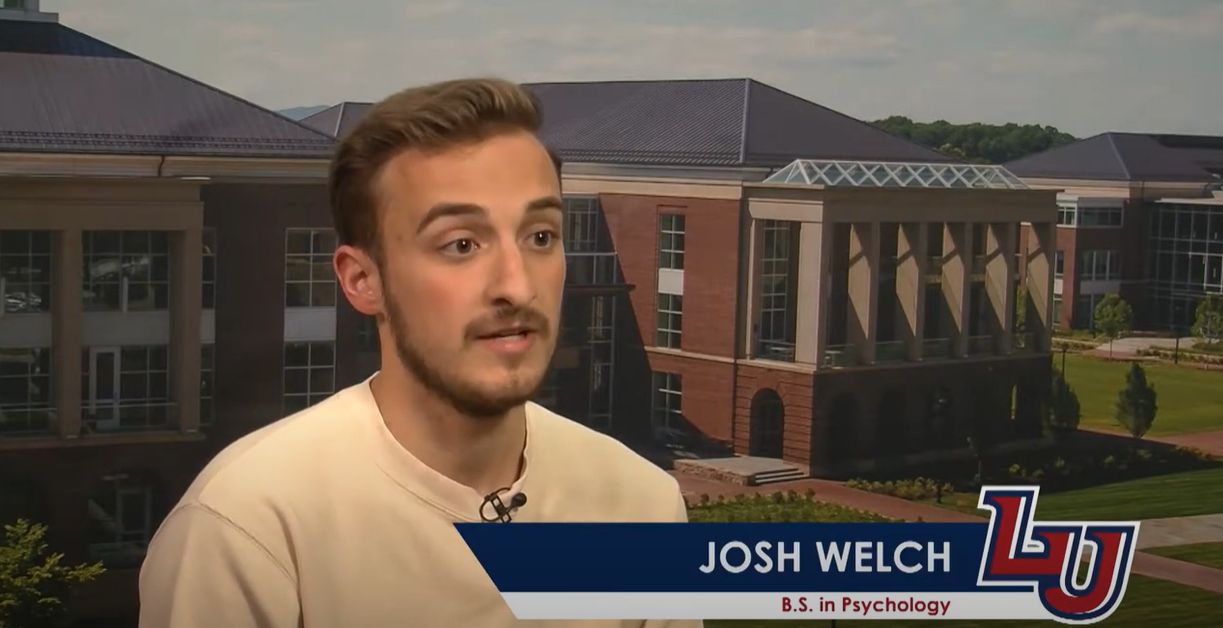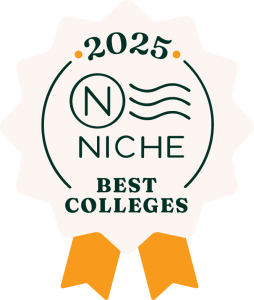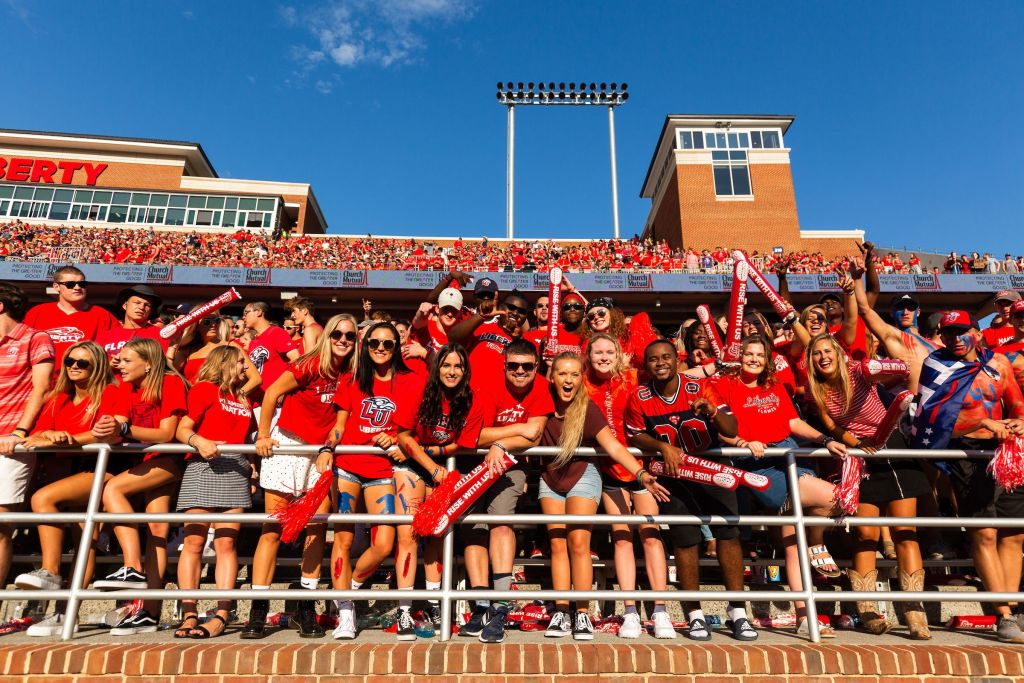
Bachelor’s Degree
in Psychology
Overview
Start Your Journey as a Professional Helper with Our Bachelor’s Degree in Psychology
Have you always had the desire to be in a profession where you get to help others? Helping others is not only a gift to those around you, but it can also be personally fulfilling. By pursuing our Bachelor of Science (BS) in Psychology, you can gain foundational knowledge and skills to begin a career in the helping professions.
If you’re interested in becoming a professional counselor or psychologist, your next step after a bachelor’s degree is graduate school, and our program can prepare you for that. However, you may choose to pursue a career in human services or case management upon graduation, and our program can prepare you for that as well.
So what are you waiting for? Our world needs people like you who are excited about helping others and desire to make a positive impact. If you choose to pursue our psychology degree, we can support you in accomplishing these goals.
Credit Hours
View CoursesNext start date: Aug 18, 2025

Liberty University is accredited by SACSCOC
Highlights of Our BS in Psychology Degree
Christ-Centered Education
Our psychology courses integrate faith with the latest research and counseling techniques. This unique approach can help prepare you to serve others with both scientific expertise and a strong ethical foundation. You can develop knowledge and skills to help you contribute to the field.
Specialized Areas of Study
With multiple areas of study available, you can focus on the career path that interests you most. Whether you’re passionate about clinical work, research, or another area of psychology, you can find courses that align with your goals. This flexibility allows you to build a strong foundation in your chosen specialty.
Research and Faculty Mentorship
Engage in research projects alongside faculty mentors who guide you through the process. Your work may lead to opportunities for presentation or even publication as an undergraduate student. This hands-on experience can help enhance your skills and strengthen your resume for future career or graduate school opportunities.
Practical Training and Internships
Gain real-world experience through psychology events and internships designed to prepare you for your future career. These opportunities allow you to apply what you’ve studied in the classroom to professional settings. Training experiences like these can help build confidence and valuable connections in the field.
Engaging Experiences and Community
Take your studies beyond the classroom with academic trips to Ecuador, New York, and Poland. Join Club Psych to connect with professors and peers who share your interests. These experiences foster personal and professional growth while expanding your understanding of psychology in different contexts.
Career Potential
Potential Career Opportunities for Bachelor’s in Psychology Graduates
Liberty University’s Bachelor of Science in Psychology can help prepare you to pursue the following occupations:
- Child development psychologist
- Church counselor
- Counselor in a group home
- Counselor/psychologist with a private practice
- Human resources counselor
- Middle or high school guidance counselor
- Residential treatment counselor/psychologist
- Substance abuse counselor
- Treatment center counselor/psychologist
Testimonial (0:53)

Courses
What Will You Study in Our BS in Psychology?
In our psychology degree, we have curated a curriculum that is rewarding, flexible, and can help equip you for the next step toward your intended career or in your academic journey. Throughout this degree, you’ll take multiple general education and psychology courses, as well as have the opportunity to add diverse electives or a minor.
As you study, some of the courses you take will cover topics like research, social psychology, personality, statistics, physiological psychology, and psychological measurement. Each of these courses can help prepare you to enter the career field you choose or apply to a graduate program that requires a psychology foundation.
You have the opportunity to choose multiple electives to get a sampling of different courses you’re interested in, or you could choose one of our many minors like global studies, business, or technical studies to give yourself additional marketable skills and bolster your resume.
Featured BS in Psychology Courses
PSYC 312 – Social Psychology
PSYC 341 – Psychology of Personality
PSYC 365 – Psychological Foundations of Learning
PSYC 420 – Psychology and Christianity
Explore further with the Degree Completion Plan or Course Catalog. This program falls under our School of Behavioral Sciences.
BENEFITS
Why Choose Liberty For the Bachelor’s in Psychology Degree?
Commitment to Your Success
At Liberty, we strive to provide you with the best education possible. You can study under professionals, take rewarding courses, and gain valuable experience. Upon completing your degree, we want you to be equipped to begin your career journey or pursue graduate studies.
Experienced and Dedicated Faculty
Our professors are experts in psychology and counseling, each with advanced degrees and real-world experience. They bring professional practice into the classroom while teaching from a Christian perspective. Beyond academics, they invest in students’ spiritual and intellectual growth.
Hands-On Opportunities
Our psychology program offers valuable real-world experience and networking opportunities. You can collaborate with professors on research projects, with the potential for publication as an undergraduate. Additionally, internship opportunities provide practical training to prepare you for your future career.
Engaging Community and Networking
Beyond coursework, you can participate in various psychology activities to expand your experience. Joining Club Psych allows you to connect with faculty and peers who share your interests. These opportunities help you build meaningful relationships and develop a strong professional network.
Tuition & Aid
How Much Does it Cost to Attend Liberty On Campus?
Knowing up-front what you’re paying for and why can go a long way toward making you feel comfortable about your investment. This overview of major college costs can give you an idea of what’s coming so you can create an accurate budget from the start.
All Tuition & Aid
| Part-time (<12 Credits) | $845 |

#4 Best College Campus in America
At Liberty, you’ll find an affordable, high-quality education designed to help equip students like you for the real world. Our commitment to excellence has earned us recognition as the #4 Best College Campus in America by Niche.com.
Earning your degree from a nonprofit university with state-of-the-art resources like ours can help set you apart from your peers.
Specializations
Specializations of Our BS in Psychology
Explore specialized areas within the field of psychology that match your personal interests and career goals. No matter what you are passionate about, our specializations allow you to tailor your degree to your calling.
Specializations
General*
Child Life Specialist
Counseling
Criminal Psychology
Developmental Psychology
Industrial/Organizational Psychology
Sport Psychology
Admissions
How Do You Become a Bachelor’s in Psychology Student?
Every application is reviewed by the admission committee on a case-by-case basis, meaning there are no set minimums for acceptance. However, all applicants must submit the following documents* for admission:
- Admission application
- Official high school transcripts
- Official college transcripts (if applicable)
- Admission essay
Results from the CLT, SAT, or ACT are not required for admission, but may be used in consideration for merit-based aid.
*Note that additional documentation may be requested by the admission committee after your application has been received.

Have Questions?
We’ll make sure you have the information you need to take your next step.